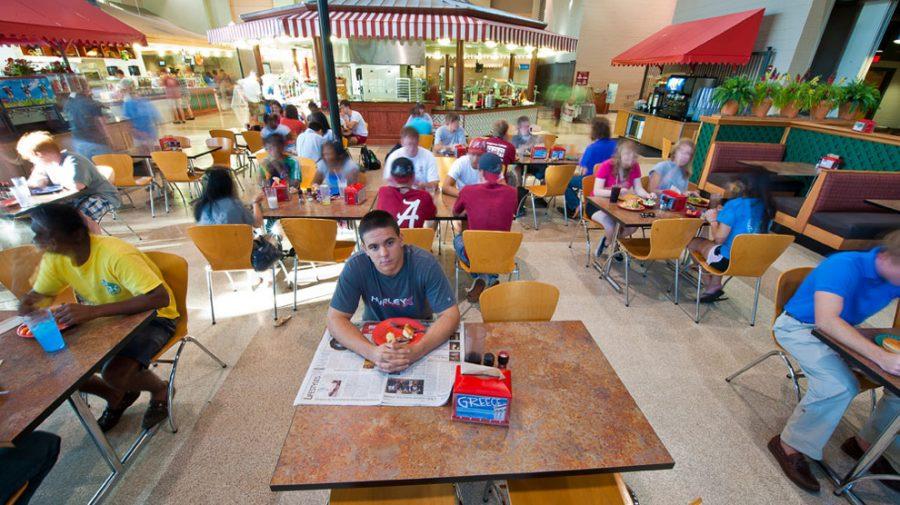If you avoid campus streets and dread crosswalks for fear of being struck by a bus, take heed. You might be experiencing Generalized Anxiety Disorder, and you might not be alone—even if it is just another “other fear.”
According to a survey he administered to 501 college students last year, Martin Sellbom, UA professor of psychology, found that the most common fears among college students tend to be social in nature. Sellbom asked students to rate their fear from a level of one (no fear) to five (very much fear) in the survey.
Failure was at the top of the six biggest social fears with 22.2 percent of students marking they feared this “very much.” Speaking in public followed, along with rejection, looking foolish, feeling disapproved of and making mistakes, according to the data.
Dead people, witnessing surgery and enclosed spaces topped the list of “other fears” Sellbom found in his study. The fear of various natural disasters would probably have been higher on the list had the survey been administered after the April 27 tornado, he said.
People who suffer from GAD exhibit excessive worry about daily events, said Matthew Jarrett, a psychology professor at the University of Alabama. For example, a student’s worries may lead them to avoid missing a class for fear of failing the course.
“Although all people worry, people with GAD often have a tendency for ‘catastrophic thinking’,” he said.
Jarrett said GAD is among the most common anxiety disorders along with Social Phobia (SOP), Panic Disorder, Post-Traumatic Stress Disorder (PTSD) and Obsessive-Compulsive Disorder.
While these fears do not directly arise from attending college, Jarrett said he believes the stress of the college transition lends itself to such irrational or even “magical fears.”
OCD is one disorder that causes these magical fears, he said. It is characterized by repetitive thoughts or images that someone cannot get out of their mind along with compulsions that act to regulate the obsessions.
One of the more common fears tied to OCD is a fear of contamination, leading to obsessive hand washing. This fear might even cause one to believe that touching a doorknob will contaminate a person to the point of death, Jarrett said.
OCD students might also avoid knives based on the fear of losing control and stabbing oneself.
Showing up 20 minutes early to class may mean you have SOP. The disorder is characterized by a chronic fear of evaluation by others, causing students to avoid social situation that evoke this anxiety, Jarrett said.
“I once worked with a student who was fearful about showing up late for class and being judged by others for being late,” he said. “[He] experienced so much anxiety that he was unable to open the door to the class even though he was only a minute late.”
Others avoid eating alone for fear of judgment, but students don’t realize that other students experience the same fear, said Rosanna Guadagno, professor of psychology.
She said students should take a chance on meeting new people to combat these feelings.
If you fear a return to places where a thought sent you into great distress, you might have Panic Disorder. It’s characterized by unexpected episodes of extreme fear accompanied by intense physical symptoms, Jarrett said.
Alexa Chilcutt, a public speaking professor, knows much about glossophobia, the fear of public speaking.
She said rehearsal, particularly in the venue where a speech is due, allows students to become more comfortable with these challenges.
Jarrett said common fears become severe based on frequency, intensity and duration and may require treatment.
Guadagno said people experiencing unusual fears should seek help at the campus Counseling Center or Psychology clinic.









